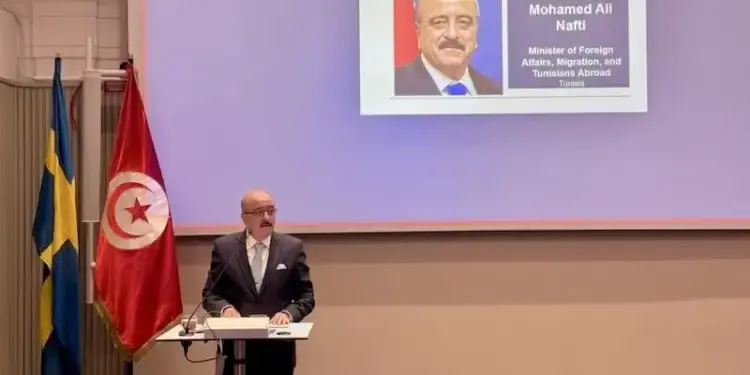Tunisia seeks to consolidate its position on the regional economic chessboard. On a visit to Sweden, the Minister of Foreign Affairs, Mohamed Ali Nafti, defended a strategic partnership between Tunis and Stockholm, emphasizing the reforms initiated to strengthen the attractiveness of the country.
During the Tuniso-Suédois Business Forum which he chaired, the Minister underlined the Tunisian competitive assets, particularly his belonging to the COMESA and the ZLECAF, positioning the country as a privileged access point to the African market. “We want to deepen our collaboration with Swedish companies, recognized for their expertise and their capacity for innovation,” he said.
Mr. Nafti welcomed the presence of Swedish companies in Tunisia and expressed his wish to see their number reaching a hundred. He also highlighted the importance of conect and business sweden in the development of bilateral trade relations.
For his part, the Swedish Secretary of State for Foreign Affairs spoke of cooperation opportunities in the sectors of renewable energies, digital transformation and the green economy, recalling that an economic forum bringing together the Nordic countries had held in Tunisia in November 2024.
The discontent of the students targets diplomatic relations
However, behind these official speeches celebrating economic rapprochement, a wave of dissatisfaction persists among Tunisian students. The Swedish decision to exclude Tunisia from the Global Professional Stock Exchange Program from the Swedish Institute for 2025 throws a shadow on these apparently flourishing bilateral relations.
This measure, announced in February 2025, caused general misunderstanding in Tunisian university circles. Despite the justifications for the Swedish Embassy evoking the small number of applications (only 14 in 2024) and their insufficient quality, bitterness remains palpable.
“How to talk about privileged partnership when our students are excluded from a major educational program, while other countries in the region such as Egypt and Morocco continue to benefit from it? Asked many observers.
The alternative proposal for the “Shentrepreneurs” program for Tunisian women’s women, highlighted by the embassy, is not enough to appease frustration.








